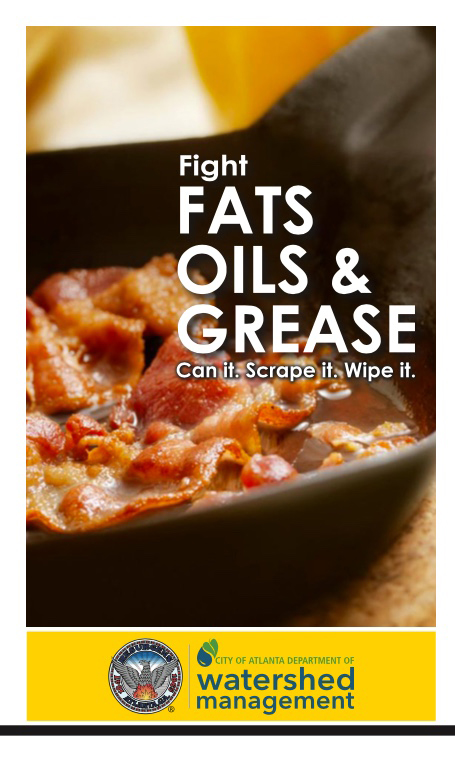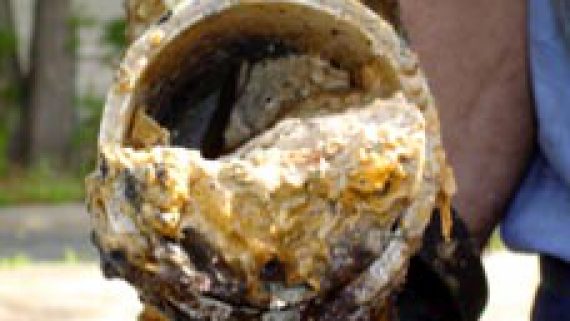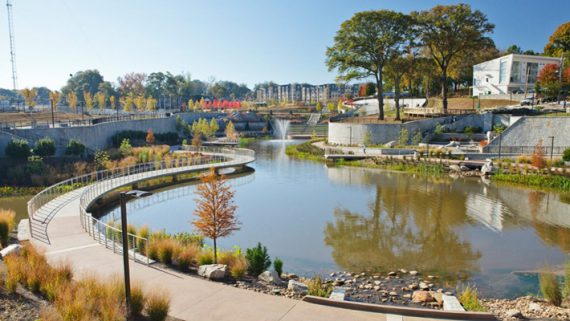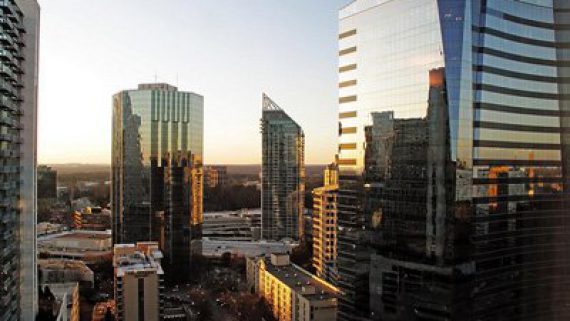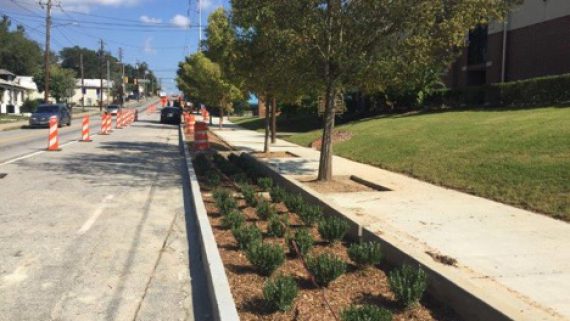Grease Management
About the Grease Management Program
Wastewater discharges containing high concentrations of fats, oils and grease (FOG) from food service establishments such as restaurants, schools, nursing homes, day cares and other similar public facilities contribute to more than half of the blockages or overflows in the city’s wastewater collection system. To effectively address the issue, the city developed a Grease Management Program.
The purpose of the grease management program is to establish uniform permitting, maintenance and monitoring requirements for controlling the discharge of fat, oil, & grease from food service facilities discharging into the city’s wastewater collection system.
For more information on the Grease Management Program, please call 404-546-1503.
Permits
All food service facilities are required to submit a complete permit application, pay permit fees and be available for inspections. The following permit fees are assessed based on the number of grease traps required per facility:
| Number of Traps | Permit Fee |
|---|---|
| 0-5 | $300 |
| 6-10 | $600 |
| 11-15 | $900 |
| 16-20 | $1,200 |
| 21-25 | $1,500 |
| 26-30 | $1,800 |
| 31-35 | $2,100 |
| 36-40 | $2,400 |
Grease Trap Requirements
Please refer to the Grease Management Ordinance, section 154-297.01 for the proper type and sizing of required grease traps.
Plan Review Handout
COA Standard Grease Trap Design Handout
Plan Review
The Site Development Division will be responsible for all grease trap plan reviews. For more information on Grease Trap Plan Review please call 404-330-6249.
All food service facilities are required to submit three (3) copies of the following before obtaining a plumbing permit.
Site plans — must show boundaries of property
Floor plans — must include a list of all equipment in the kitchen, show the equipment connections and the tie in to the main sanitary line.
Contact Person for Plans — including a name, email address and telephone number.
Specifications of the proposed grease trap
a. Must be depicted at its locations on the plans
b. Grease trap details shall include: company name, model number and a picture showing the cross section of the grease trap.
Note:
Facilities with existing grease traps are required to provide as-built drawings of the grease trap
All existing grease traps require field verification prior to plan approval. Please contact The Grease Program at 404-546-1503 to schedule an inspection
Fats, Oil and Grease (FOG) Best Management Practices (BMPs)
Food service establishments can implement no-cost or low-cost BMPs to eliminate fats, oil and grease (FOG) in their wastewater. The following table lists several BMPs and the benefits to Food Service Establishments.
Grease Haulers
For information on licensed haulers please visit
https://www.southeasternfogalliance.org
Residential Grease
Residents can help prevent pipe blockages and sewer overflows by keeping grease out of the sewer system. Sewer backups can cause damage to homes and health hazards, and can threaten the environment. Sewer pipes blocked by grease are an increasingly common cause of overflows.
Where does grease come from?
Fats, Oils, and Grease are a natural consequence of cooking and occur naturally in many foods. Grease is the common term for animal fats and vegetable oils. It can be found in such items as:
Meat fats
Lard
Butter and margarine
Cooking oil
Shortening
Food scraps
Baking goods
What are the grease issues?
Grease is frequently poured down the sink drain. The warm oils are liquid, can be poured and thought to be harmless. It may not appear to be harmful but as the liquid cools, the grease solidifies and causes buildup inside the pipes, becoming a hardened mass. The buildup restricts the flow of sewage and clogs the pipes. The implications can be:
Raw sewage backing up into your home.
Increased calls for a plumber.
An unpleasant and expensive cleanup at your expense.
Raw sewage overflowing into parks, yards and streets.
Potential contact with disease-causing organisms.
Increased cost for local sewer departments, which causes higher sewer bills for customers
Be a FOG Fighter
City of Atlanta fights FOG (Fats, Oils and Grease) in Pipes
Never pour grease down the sink or into the toilet.
Scrape grease and food scraps into a disposable container or place in a trash can (after cooling).
Do not put food scraps down the garbage disposal. These units only shred solid material into smaller pieces and will not prevent grease from going down the drain.
Use a strainer in the sink to catch food scraps and other solids.
Contact Us
For grease trap requirements or to report a grease violation, please call 404-546-1503.
Mailing Address:
Department of Watershed Management
Grease Management Program
72 Marietta Street
Atlanta, Georgia 30303


Our Address
Department of Watershed Management Administrative Offices
72 Marietta Street NE
Mon-Fri – 8:15 am to 5:00 pm
City Directory
Need to contact another city department?


